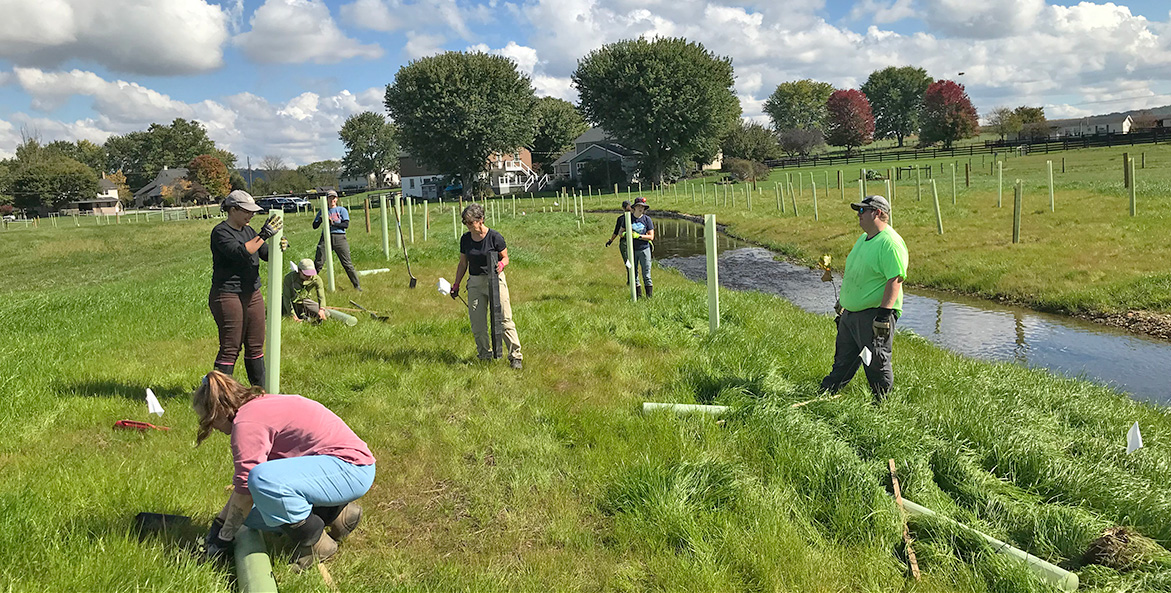Since 1986, CBF’s efforts in Pennsylvania have emphasized collaborating with landowners to implement on-farm practices that result in cleaner waters and more profitable, sustainable, and environmentally responsible farms.
We rely on science-based approaches, as well as extensive staff knowledge, on-the-ground experience, and long-standing relationships, to bring about changes that result in improved water quality and environmental conditions throughout the Chesapeake Bay and Susquehanna region.
Our Watershed Resiliency Program has locally based field staff working on the ground in Adams, Centre, Cumberland, Dauphin, Franklin, Lancaster, Lebanon, Mifflin, and York counties.
Our Focus on Resiliency
We know that our efforts need to balance economic viability with environmental sustainability to be successful. That’s why we focus on building and maintaining strong partnerships and implementing restoration projects that improve a watershed’s resilience—its ability to recover—to both natural and human disturbances.
We employ a “4P” strategy to identify and implement efforts to meet this goal. This involves creating and implementing collaborative and innovative local watershed plans; aligning local, regional, and national partners in high priority places; and implementing proven agricultural practices for the greatest impact. To ensure these activities are economically viable for farmers and landowners, CBF offers incentives such as cost-share vouchers to assist landowners with the installation, planning, or design of on-farm conservation practices.
Funding Conservation in Pennsylvania
The cost of implementing on-farm conservation practices can vary greatly depending on the practice and location. Projects sited and implemented by CBF in 2024-25 are coming in at an estimated $8,000 per acre.
Critical to the success of these efforts is CBF’s ability to leverage federal, state, and private funding to offer cost-share vouchers in priority counties. Since 1997, CBF has facilitated the investment of over $40 million in conservation dollars in Pennsylvania by working directly with more than 5,000 landowners to implement on-farm and streamside conservation practices.
CBF augments funding available to landowners, such as the U.S. Department of Agriculture’s (USDA) Conservation Reserve Enhancement Program (CREP) and Environmental Quality Incentive Program (EQIP) and Pennsylvania’s Agriculture Conservation Assistance Program (ACAP) and Resource Enhancement Protection program (REAP).
CBF has been successful in maximizing pollution reductions through relationships with farmers and landowners, with targeted use of available conservation funding and technical resources.



